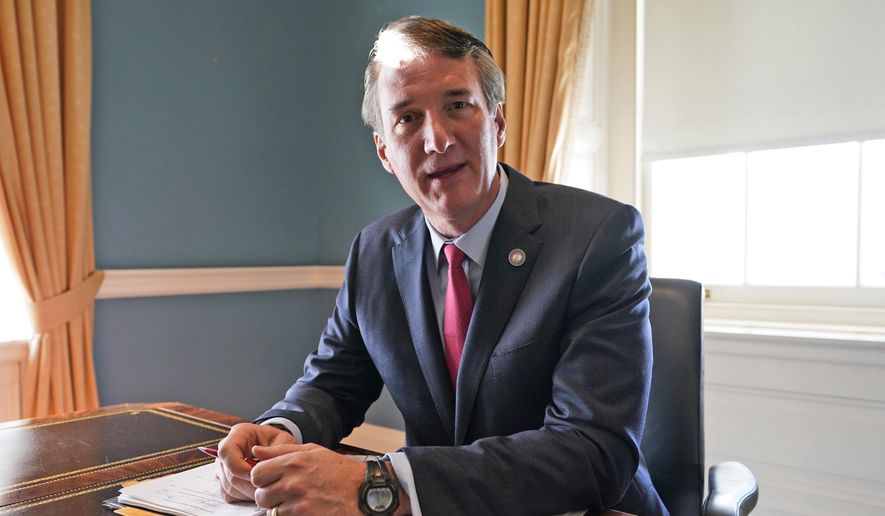RICHMOND, Va. — Republican Gov. Glenn Youngkin vetoed 26 bills - including some that passed with broad bipartisan support - as he took action on more than 800 bills the divided legislature sent him during its regular session.
None of the vetoed bills were sponsored by Republicans, a point Democrats quickly seized on, criticizing the first-term governor as excessively partisan.
“It’s not clear to me why the governor thinks that he’s got the monopoly of what’s right for Virginia when these bills have already been vetted by bipartisan majorities,” said Democratic Sen. Scott Surovell, who sponsored two bills Youngkin vetoed.
Youngkin’s veto total was higher than any other governor in his first year in office since Republican Jim Gilmore, who had 37 in 1998, according to an accounting by the nonpartisan Virginia Public Access Project. Democratic Gov. Ralph Northam, who preceded Youngkin, was close with 20.
Democratic Sen. Adam Ebbin, who sponsored nine of the vetoed bills, said he sees those vetoes as retaliation against him for leading a Democratic charge to block the nomination of former Environmental Protection Agency Administrator Andrew Wheeler to be Youngkin’s secretary of natural and historic resources.
The General Assembly will have a chance to override the vetoes when it reconvenes later this month. Doing so would take a 2/3 vote in both chambers.
The vetoed measures span a wide range of policy areas. A few of the highlights include:
- A bill that would have prohibited high school student athletes from receiving compensation in exchange for the use of their name, image, or likeness.
- A bill that would have prohibited heavy truck operators from using cruise control or compression-release engine breaks while driving in active snow, sleet or freezing rain. The measure was aimed at preventing a repeat of the snowy traffic logjams on Interstate 95 in January. Youngkin said the bill would impose burdens on the trucking industry and interstate transportation without any demonstrable benefit.
- A measure that would set a three-year statute of limitations on the collection of medical debt. In his veto statement, Youngkin said he was committed to reducing the burden of medical debt but thought the legislation would “inadvertently” capture other forms of debt.
- A measure that would have prohibited insurers from including a surcharge on the insurance premiums of tobacco users. “Requiring non-tobacco users to cover the increased healthcare costs associated with tobacco use is not a policy I can support,” Youngkin said.




Please read our comment policy before commenting.